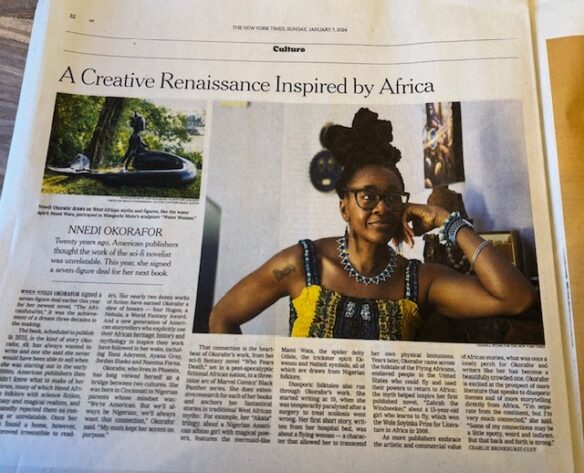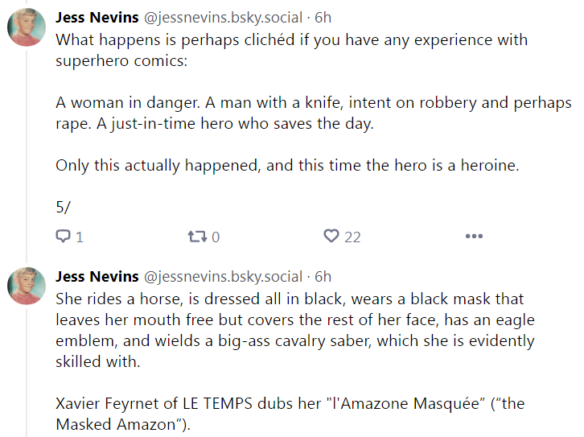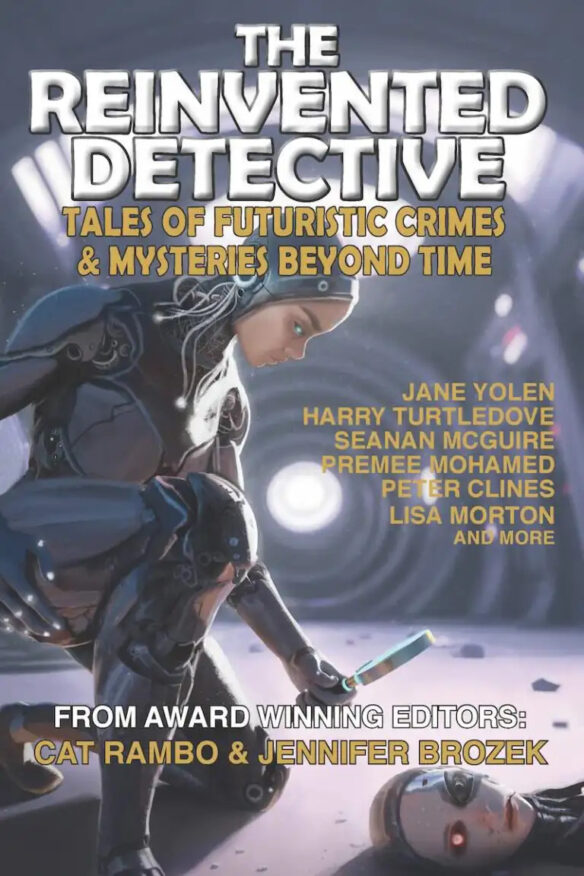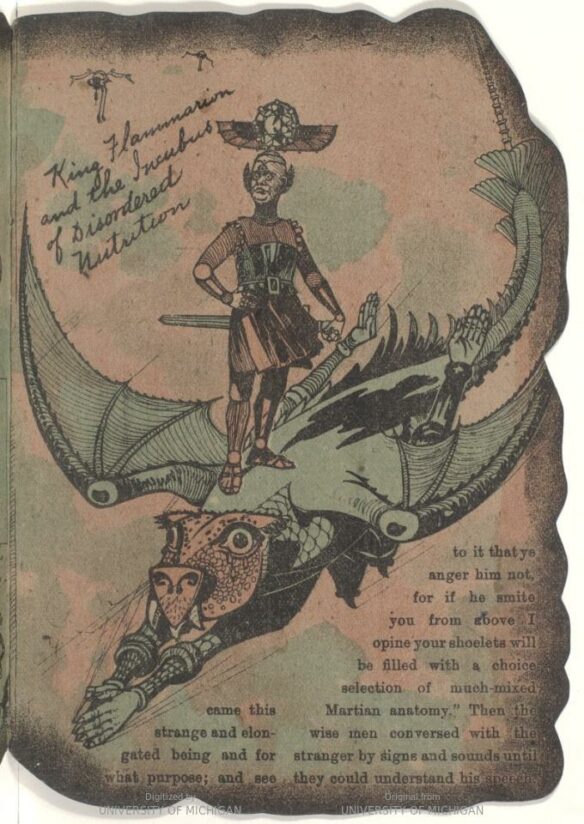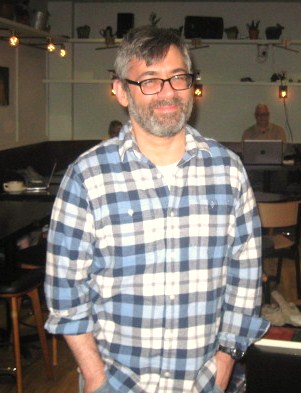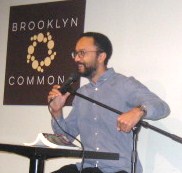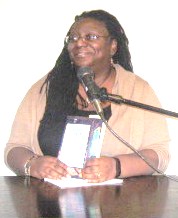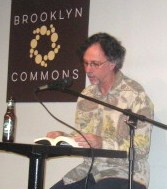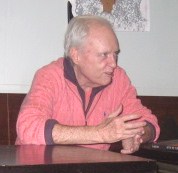(1) COMING IN FOR A LANDING. Los Angeles Magazine tells why “George Lucas’ Billion Dollar Museum Is About Way More Than ‘Star Wars’”. A year ago this design looked unique. But today? I bet you can guess what building it reminds me of now.
We’re still maybe a year out from the grand opening of the new museum created by film director George Lucas and his wife, executive Melody Hobson. But anyone visiting the Coliseum, Natural History Museum, USC, or riding the Expo Line has seen the Lucas Museum of Narrative Art rising above Exposition Park. The absolutely massive structure by Beijing-based architect Ma Yansong encloses some 300,000 square feet over a building ranging from three and five floors set atop an underground parking garage (with 600 more spaces than the surface lot the building replaced) all nestled in a green garden….

(2) A SHORE THING. A trailer has dropped for The Wild Robot. Arrives in theaters on September 20.
The epic adventure follows the journey of a robot—ROZZUM unit 7134, “Roz” for short — that is shipwrecked on an uninhabited island and must learn to adapt to the harsh surroundings, gradually building relationships with the animals on the island and becoming the adoptive parent of an orphaned gosling.
(3) LEARNEDLEAGUE SFF QUESTION. [Item by David Goldfarb.] It’s the hundredth season of LearnedLeague. The first question of match day 15 asked us:
“What name is the last word uttered in the final installment of the Star Wars sequel trilogy from 2019, as well as the last word of the film’s title?”
Way to nerf the question with that last clause, eh? Although even with that, the question had a 67% get rate, with 12% giving the most common wrong answer of “Jedi”. (Presumably thinking of the second movie in the trilogy.)
My opponent quite rightly assigned me 0 points for this one, as did I for him.
(4) HANDS (OR LEGS) UP FOR “YES”? NO? [Item by Mike Kennedy.] Is the giant spider in Netflix’s Spaceman real or just a figment of the title character’s imagination? The main creatives each have an answer but it may not be your answer. Beware — spoilers ahead.
There’s an obvious question at the heart of Spaceman, Netflix’s science fiction movie where Adam Sandler’s forlorn astronaut character spends half the story
talking to a tennis ballcommuning with a giant alien spider that he names Hanuš. But even without watching the movie, viewers may wonder: Is Hanuš actually real?Normally, when a movie revolves around this kind of question, the director and stars hedge when asked for their opinions. For instance, No One Will Save You writer-director Brian Duffield has been clear that he wants viewers to interpret that film’s startling ending in whatever way they think fits best, without his input. Andrew Haigh has been careful about weighing in on the controversial ending of All of Us Strangers. And that’s entirely reasonable — often filmmakers want to keep viewers guessing, thinking, debating, and interpreting.
But not always. Polygon couldn’t resist asking Spaceman director Johan Renck and stars Adam Sandler and Paul Dano what they think about the movie’s central debate point — and we were surprised at how definitive their answers were. We’ll get into the details after a spoiler break….
(5) MPSE GOLDEN REEL AWARDS. The Motion Picture Sound Editors presented their Golden Reel Awards on March 3. Here are the winners of genre interest:
EFFECTS & FOLEY
- Oppenheimer
DIALOGUE & ADR
- Oppenheimer
ANIMATION
- Spider-Man: Across the Spider-Verse
(6) IN THE YEAR 2024. “Plane commutes, world peace and 100-year-old predictions about 2024” at USA Today.
Well, we’re finally here. Is this the future that you envisioned?
Nearly 100 years ago, a group of visionaries dared to imagine what life would be like in 2024. Some of their prophecies fell woefully short while others proved to be strangely accurate.
Join us now as we gaze into that crystal ball from 1924….
A growing problem
Arthur Dean, whose parental advice column appeared in newspapers across the country, expressed concerns about American dietary habits.
“I sometimes wonder what our stomachs will look like and be like 100 years from now,” he wrote. “Will we have any teeth at all? Will there be any color on our face except paint? Will the men have any height to speak of or will they be all girth? Will people have mostly an east and west appearance – all latitude and lassitude and no longitude?”
(7) SFWA ESTATES LEGACY PROGRAM. The Science Fiction & Fantasy Writers Association has informed members that Mishell Baker is stepping down from her lead position on the Estates Project but will remain available for consultation. Going forward, the remaining Estates Project volunteers will cover her duties as needed.
Mishell is a winner of the Kevin J. O’Donnell Service to SFWA Award, and she served as the primary contact for SFWA’s Estate Project since 2016. She liaised with publishers interested in reprinting works by science fiction and fantasy authors who are no longer with us and acted as an intermediary for individual heirs who wished to keep their contact information confidential. Mishell gained a well-deserved reputation for handling these communications with consistency and sensitivity, providing help in sometimes difficult and confusing situations.
The Estates-Legacy Project wishes to thank Mishell for her many years of exceptional service on behalf of writers, their heirs, and the readers now enjoying the work of past masters as a result of her efforts.
(8) RICHARD BOWES (1944-2023). In “Richard Bowes—A Remembrance” at Uncanny Magazine, Lynne M. Thomas and Michael Damian Thomas, Christopher Barzak, Matthew Cheney, Sam J. Miller, and Matthew Kressel share their memories and feelings about Bowes, who died December 24. Here is an excerpt fro Kressel’s segment:
I’m fairly certain I met Rick Bowes at a Fantastic Fiction at KGB reading on November 15, 2006. That night, Lucius Shepard and Catherynne Valente were reading. This may seem awfully specific, but I have proof. Ellen Datlow captured this moment in a photo that resides on her Flickr stream. For a Halloween party I’d bleached my hair and dressed up as Roy Batty from Blade Runner. In the photo, Rick leans in, hands pressed like a sage, telling me something with authority, while I, with my Billy-Idol-blonde hair, listen rapt. (In the background, Rajan Khanna, whom in this moment I have yet to befriend, stares at the camera.) And this is how I will remember Rick. Telling stories. His depth of knowledge always astounded me. Right away, I knew I was in the presence of a sharp mind….
(9) TODAY’S BIRTHDAY.
[Written by Cat Eldridge.]
Born March 5, 1951 — Margaret Astrid Lindholm Ogden, 73. Let’s talk about Margaret Astrid Lindholm Ogden who writes under the pen names of Megan Lindholm and Robin Hobb. Thirty-six years ago at the age of thirty, as Megan Lindholm, her second novel, a fantasy set in Seattle was published. That was the extraordinarily excellent Wizard of the Pigeons, a novel that bring a smile to the face of even the Suck Fairy.

In a sense, it is a direct evolution from her fiction as children’s writer which published in magazines as Jack and Jill, Highlights for Children and Humpty Dumpty as she notes. Her Robin Hobb persona, she claims is a little more gentle than her Meghan Lindholm persona which, as she told a Bookseller interviewer, is “a little more snarky, a little more sarcastic, a little less optimistic, less emotional”.
So let’s stay with her writing under the Lindholm name. Her first writing as that persona was short fiction was in 1979, “Bones for Dulath”, followed in 1980 by “The Small One” and in 1981 by “Faunsdown Cottage”. She’s written (and coauthored) twenty-six stories exclusively as Lindholm. That includes five works in Emma Bull and Will Shetterly’s Laivek franchise, some co-written with Stephen Brust or Gregory Frost.
Lindholm’s first novel, Harpy’s Flight, was published forty-one years as ago, and was the first in her Windsingers series about the characters Ki and Vandien, and, yes, I like these novels a lot.
Now remember these Birthdays are, if I choose, are what I’ve read by a given writer and this is what I’m doing here as I’ve read enough her to be reasonably knowledgeable about her.
The final novel by her that I’ve read is the one she did with Stephen Brust, The Gypsy. It’s based on Romany folklore, and it’s more or less a mystery. It got its own soundtrack courtesy of Boiled in Lead, vocals by Adam Stemple, son of Jane Yolen. Superbly crafted work.
So now her other persona, Robin Hobb, and may I now say that I like both of the creators that she choose to be? Really I do.
Her first work as Hobb was the Farseer trilogy, narrated in first person, my favorite way to experience this sort of fiction, involves FitzChivalry Farseer, illegitimate son of a prince. Great character, ever better series. The first volume of the trilogy, Assassin’s Apprentice, sets up them well.
Ok, I’ll admit I’ve read much of the Realm of the Elderlings franchise, though by no means all, that talking about it coherently isn’t possible. What I will say is nothing by her is anything by really, really good. I will say, despite Margaret Astrid Lindholm Ogden saying Hobb is the gentler of the two, that trigger warnings for brutality and even rape are necessary here. Really they are.
Both personas in the end aren’t, despite her claims, really that different. The only novel that is decidedly different I can say as a reader is The Gypsy but that was co-written with Brust as were the four Laivek works. Co-written works are such that one never knows how much that the one has influenced it and how much the other has.
(10) A NEW MEANING FOR WC. “What Is WcDonald’s, McDonald’s Anime Counterpart?” at Food Network. One of these comics was on my bag today!

… This month, McDonald’s is embracing what has become a common … homage, shall we say, to its golden arches in anime films and series: WcDonald’s.Swapping in a “W” — or, rather, an upside-down “M” — has become a cheeky way for animators and illustrators to let their characters dine at or otherwise interact with what the audience can immediately identify as a McDonald’s without licensing the actual name of (or getting sued by) McDonald’s itself. Starting next week, however, McDonald’s is embracing its cartoon counterpart at its real-life restaurants in the U.S. and beyond…. A New McNugget Sauce: To pair with “WcNuggets,” a new, limited-edition Savory Chili WcDonald’s Sauce is coming to the menu, described as a “unique combination of ginger, garlic and soy with a slight heat from chili flakes.” Manga-Inspired Packaging: Japanese illustrator Acky Bright designed original artwork of WcDonald’s crew members for the McDonald’s/WcDonald’s items. Packaging will also feature a QR code with access to digital WcDonald’s manga content weekly featuring Bright’s cast of WcDonald’s characters (yes, one is a mecha).
The promotional website WcDonald’s has a lot of content. Here are some of the newest characters.

(11) LAST DARKNESS FALL — PERMANENTLY. “Solar eclipse glasses: Why you need them, and why you should buy them right now” – advice from Slate. “The eclipse is happening on April 8—and last time, the glasses sold out many places.”
Few natural phenomena bring sci-fi-esque buzz like a solar eclipse. Some people talk about this astronomical event as if it comes straight out of a Ray Bradbury story. And those people are right! Solar eclipses are, without hyperbole, awesome. And just in case you haven’t heard, there’s one happening on April 8.
Of course, a cardinal rule of day-to-day life still applies to eclipses: You must absolutely not look at the sun directly—even if it’s partially obscured by the moon. It can cause permanent retinal damage.
Photoreceptors in the eyes register and convert light to electrical signals detected in your brain. The powerfully incandescent sun overwhelms those photoreceptors, bombarding them with far more light than they can convert. Any light your photoreceptors don’t absorb filters through to the back of your eye, producing heat. Although the moon partially blots out the sun, that doesn’t make the rays that are visible any less potent. Look at a partial eclipse long enough and you can burn the sun into your retinas, which can result in a permanent hole in your vision called a scotoma. Since your retinas lack pain receptors, you won’t know that the damage has been done until it’s too late. Looking through conventional binoculars or telescopes doesn’t mitigate this risk….
(12) ROLL THE CREDITS. “Superman movie to film in Ohio, hire more than 3,000 locals” at NBC4i. The state will reward this decision with a big tax credit.
It’s a bird! It’s a plane! It’s Superman! A new movie on the comic book hero is filming in Ohio this year and has been awarded about $11 million in tax credits, with plans to hire more than 3,000 locals.
The DC Studios movie titled simply “Superman” is filming in Cincinnati and Cleveland this spring and summer and will receive $11,091,686 in tax credits, according to an Ohio Motion Picture Tax Credit application filed under the project’s code name, “Genesis.” The film is expected to hire 3,254 Ohio residents to take part in the production.
DC’s Ohio-related expenses are projected to exceed $36 million, which makes up about 10% of the movie’s total budget of more than $363 million….
(13) TECH BROS. “’Musk needs to be adored … Zuckerberg is out of his depth’: Kara Swisher on the toxic giants of Big Tech” in the Guardian.
…In the book, Swisher says Zuckerberg is “the most damaging man in tech”. Elon Musk, by contrast, is maligned as the “most disappointing”, which reflects Swisher’s long period of thinking of the founder of Tesla and SpaceX as one of the tech industry’s most promising sons. In 2016, she contacted him ahead of the big meeting with Trump, warning that the president-elect would “screw” him; two years later, Musk told her she had been right. All told, she seemed to believe that he operated on a higher level than most of his peers.
“Here’s someone who actually was doing serious things,” she says. “There’s a lot of people in Silicon Valley who are always doing a dry cleaning app. He was thinking of everything from cars to space to solar. Even the silly stuff like [his imagined high-speed transport system] Hyperloop: what a great idea. What an interesting idea.” She also mentions Neuralink, the venture working on computer interfaces that can be implanted in people’s brains. “How could we upgrade our intelligence? That’s a big, fascinating problem.”…
(14) SFWA INSTAGRAM PROGRAM. The SFWA Instagram Program gives users a peek at members’ daily creative lives, pets, and works. In the past year and a half, SFWA has processed nearly 200 requests and created over 600 graphics that have been shared through its Instagram account. Here’s an example:
(15) A FINE IDEA. This month (only) “A Massachusetts Library System Will Let You Pay Fines With Cat Pictures” according to Mental Floss.
It’s not often that cat photos are accepted as currency. But for the month of March, public libraries in Worcester, Massachusetts, will wipe certain fines from your account if you submit any picture of a cat.
Branches in the Worcester Public Library (WPL) system don’t charge fees for overdue books, but they do charge for lost or damaged ones. The call for cat pictures is a way to keep those bills from preventing patrons from using the library. “We at the Worcester Public Library are always looking for ways to reduce barriers,” Worcester Public Library executive library director Jason Homer told WBUR. “We know that a lot of people, unfortunately, through being displaced in housing, or life getting in the way in the global pandemic, lost a lot of materials.”
“Felines for Fee Forgiveness” is part of March Meowness, a month of cat-centric programming that includes a screening of the 2019 movie Cats, a cat-eye makeup tutorial, a “de-stressing” hour of playing with shelter cats, DIY crafts, and more events.
Before you show up to a WPL branch with a cat image at the ready, there are a few rules to know. For one, a book needs to have been lost for at least two months in order for its fee to be waived….
(16) PROTOPLANETARY SYSTEM. [Item by SF Concatenation’s Jonathan Cowie.] Last week’s issue of Science looks at the formation of other planetary systems.
This JWST infrared image shows the Orion Bar, which separates parts of the Orion Nebula containing cool molecular gas (lower left) from those containing hot plasma (upper right). The latter are ionized by ultraviolet radiation from massive stars (located beyond the image). The strong ultraviolet radiation field heats protoplanetary disks around young stars in this region, dispersing the gas needed for planet formation<
Primary research paper’s abstract here.
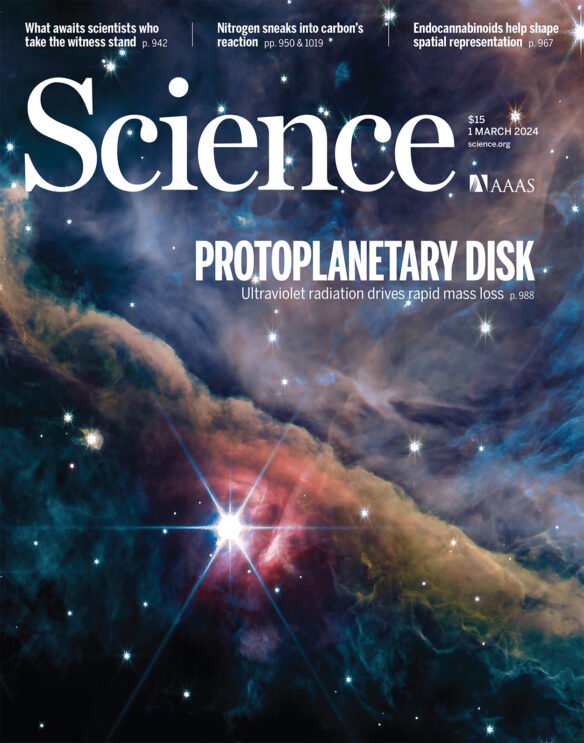
(17) VIDEO OF THE DAY. GamesRadar+ reports “Star Wars fans rocked by resurfaced beer adverts stitched directly into the original trilogy – including a bizarre replacement for Luke Skywalker’s lightsaber”. One video is embedded below, there are more at the link.
We all remember that iconic Star Wars moment where Obi-Wan Kenobi goes to give Luke Skywalker his father’s old, ice cold beer, right?
Well, if you watched a specific version of the movie shown in Chile, you might remember things that way. The old ads are going viral once again thanks to the fact that the beer marketing is spliced directly into some of the original trilogy’s most famous moments – unintentionally creating the most hilarious advertising campaign ever. While these videos might seem like fakes, they are very much real: according to The Guardian, the campaign even won an award for its ingenuity….
[Thanks to Steven French, Mike Kennedy, Andrew Porter, N., Jeffrey Smith, JJ, David Goldfarb, John King Tarpinian, Chris Barkley, Cat Eldridge, and SF Concatenation’s Jonathan Cowie for some of these stories. Title credit belongs to File 770 contributing editor of the day Jeff Jones.]

